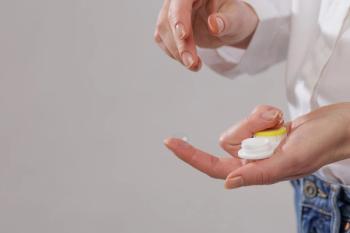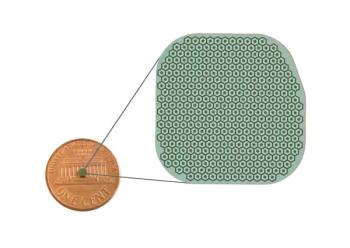
SpyGlass Pharma completes $90 million in Series C financing
The financing will help advance the company’s novel treatment system for glaucoma and other chronic ophthalmic diseases.
SpyGlass Pharma announced the closing of $90 million in Series C financing. The financing will allow the company to continue its research and conduct multiple US clinical trials of its drug delivery platform.1 RA Capital Management, whose portfolio holds both private and public companies, led the financing, with support from existing and new investors including: New Enterprise Associates (NEA), Vensana Capital, Samsara BioCapital, and Vertex Ventures HC.1
Implanted during routine cataract surgery, the SpyGlass system has the potential to bridge gaps in delivering medical therapy to the unmet needs in glaucoma management and other chronic ophthalmic diseases.
“The strong support from our investors validates the potential of the SpyGlass drug delivery platform to meet significant unmet needs for ophthalmic patients and their eye doctors,” said Patrick Mooney, CEO of SpyGlass Pharma. “This round of financing puts the SpyGlass program on a clear path towards phase 1/2 [combined] and phase 3 clinical trials to support US registration.”
Earlier this year, Mooney told Optometry Times® that 2023 is an exciting time for SpyGlass Pharma.
The company released an update on its first-in-human (FIH) clinical trial at the 6-month point in time as of February 2023. The data “showed continued efficacy and safety of mean IOP reductions of 45% across all treatment groups. And these patients are still off of IOP-lowering therapy.”2
Related:
“We believe our approach represents a paradigm shift in the treatment of eye diseases, such as glaucoma, with significant advantages compared to currently commercialized therapies, said Malik Y. Kahook, MD, co-founder and president of SpyGlass Pharma.1
“The efficacy and safety demonstrated from the first-in-human feasibility trial showing 45% mean IOP-lowering in glaucoma patients, with 100% of subjects off all topical medication 9 months after implantation, is remarkable.”
Reference(s):
1.SpyGlass Pharma Completes $90 Million Series C Financing to Advance Novel Treatments for Glaucoma and other Chronic Ophthalmic Diseases. PRWeb. Accessed July 10, 2023. https://www.prweb.com/releases/2023/07/prweb19429893.htm
2. Digging into the 6-month first-in-human clinical trial data from SpyGlass Pharma. Optometry Times. Published February 14, 2023. Accessed July 10, 2023. https://www.optometrytimes.com/view/digging-into-the-6-month-first-in-human-clinical-trial-data-from-spyglass-pharma
Newsletter
Want more insights like this? Subscribe to Optometry Times and get clinical pearls and practice tips delivered straight to your inbox.




























